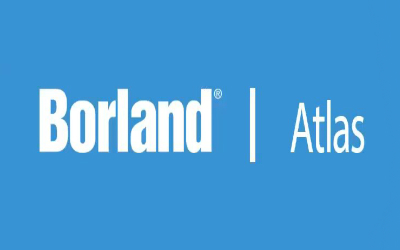Micro Focus Atlas: Requirements Management Tool Overview
Posted in Tools
In a world with rework, miscommunication, and incorrect requirements, your organization needs a tool to bounce back from lost time and effort, and get back on track to deliver a product in an efficient and smooth manner. Atlas is a tool developed by Borland Software, a Micro Focus company, that was designed for this very purpose, allowing for collaboration between teams and flexibility not seen in other requirements management tools.
Atlas is used by Product Managers to keep up with daily tasks and see how the product is evolving throughout the software development lifecycle. Business Analysts use Atlas to coordinate product plans and organize customer needs for refinement and delivery. Developers use Atlas for tracking delivery and status information linked to requirements and tasks. Finally, enhancement requests made by customers and end users can be linked in Atlas to existing or new requirements, resulting in a closer relationship with delivery teams.
By eliminating the confusion between business teams and Agile teams, Atlas helps your company gain the maximum value from your delivery teams. Atlas allows product teams to stay in sync with agile teams so that organizations can better respond to the pressures from today's market demands. It also creates a collaborative and responsive software delivery lifecycle with real-time delivery status across all teams and tools.
Atlas has 4 main features for the requirements lifecycle. You can use the Gather feature to capture your ideas through concepts within collections, the Define feature to organize and structure your work into requirements, the Plan feature to prioritize and plan your requirements, and the Track feature to track the requirements delivery process.
The Gather feature is useful for the beginning of the requirements lifecycle, where one of your team members may have an idea, concept, or inspiration. Often these great ideas are lost in the discussion phase, which is why Atlas' Gather feature allows you to upload photos, visual elements, and documents to a whiteboard. You can even take a picture with your smartphone and send directly to Atlas. The team can view the item and use a discussion tab to give input and ask questions. Want to move forward with an idea? The Relationships tab allows you to create a new requirement from an idea, giving you traceability and a simple way to add requirements to the project.
Requirements can evolve over time as our understanding of business or customer needs change. The Versions tab allows for full version management and a view into how the requirement progressed over the project's lifecycle.
With an understanding of the needs, the Define feature allows for assembly of the requirements into more organized goals in a more flexible manner than usual. You can view the type, priority, revision ID, and a description of the requirement, along with attributes, relationships, versions, discussions, and delivery progress tracking. You can also filter the requirements in the Grid View by column type and quickly restructure them to keep up with the demands of an Agile delivery lifecycle.
Agility is taken into account with the Plan feature, allowing requirements to be comprehensive yet flexible. From the full list of available requirements, the user can add the desired items to the list of planned requirements for a particular sprint, sequence them, and optimize based on estimated delivery. There is also a component for alternate planning scenarios should your team decide to take a different delivery path. With the requirements and business priorities defined, Atlas allows for real-time data syncing with major Agile tools like Rally, VersionOne, JIRA, Microsoft TFS, and Borland Agile.
Atlas is great at connecting business requirements to what’s happening in the Agile world. The Track feature allows you to see your "Completed", "In Progress", "Not Started", and "Blocked" items in your planned delivery alongside a pie chart. By clicking a segment in the pie chart, you can view development details of your plans, requirements, stories, and tasks.
Atlas was designed with a visual, incremental, and versioned approach to requirements, while including real-time status information from your Agile delivery tool. Atlas has the major benefit of involving all teams in your delivery process, removing the silo mentality and ensuring that everyone can contribute their part effectively through better communication, collaboration, and productivity. Did one of your requirements change? No worries, because Atlas features course-correction in real-time, allowing more time to be spent on innovation. You can also link detailed requirements to broken-down stories in Atlas, resulting in real-time visibility of project status.
Customers are key, which is why Atlas gives your customers the ability to become more familiar with your products and provide feedback in real-time.
The features of Atlas include:
- The ability to integrate with developer tracking tools like Rally, VersionOne, JIRA, Excel, and TFS
- Portfolio planning and scenario creation
- A multimedia repository for storing PDFs, Word documents, images, sketches, and pictures from smartphones
- A web-based interface; threaded discussions
- Real-time delivery status
DeRisk QA is a partner of Micro Focus and Borland Software, and a provider of software testing services to help your company mitigate risk and produce quality software. If you would like to receive more information, request a free trial and demo, or would like pricing details for Atlas or other tools, you can contact us at info@deriskqa.com or call us at 205-487-8791.